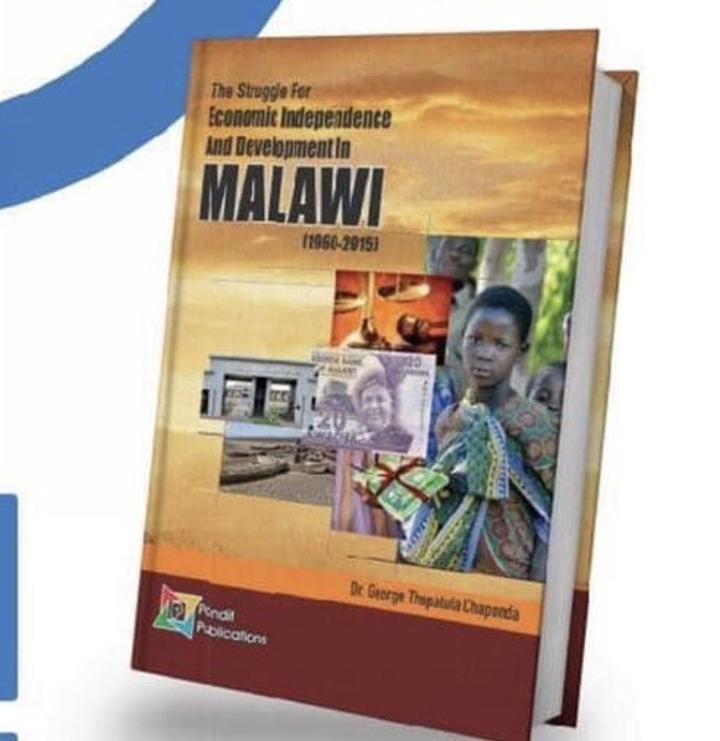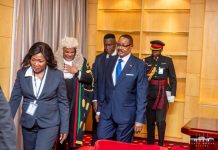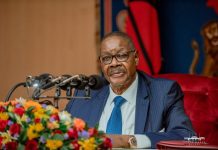Africa-Press – Malawi. Dr George Thapatula Chaponda, I should mention from the beginning, proves in his new book The Struggle for Economic Independence and Development in Malawi (1960-2015) that he is both a tried and tested international diplomat and politician.
He has seen it all having worked at United Nations for 19 years and as a politician having served in such cabinet portifolios as Minister of Education, Minister of Local Government, Minister of Justice and Constitutional Affairs, Minister of Foreign Affairs as well as Minister of Agriculture, Irrigation and Water Development.
For 15 years now he has served and represented the people of Mulanje South West as MP. And reading through his book—with a sober mind—one gets a feeling of the author’s crave to see that Malawi turns its tables around for the better.
The book applies a holistic approach to the study of the fight for economic self-rule in Malawi. This has been done by looking at the historical perspectives through the lens of political development before and after political independence. It looks at various strategies applied by the country in the fight for economic independence, including sectors of the economy that the country prioritized through the years.
The varied approaches applied by different successive political leadership have been substantiated to determine the level of the fight for economic independence. The book sets itself apart from other historical books by not only stating the facts as they were but also offering an analysis of the facts, and where necessary, offering comparative statistics.
It starts with a rebuttal of the general consensus in economics and politics today that aid has a crippling effect and could be the reason the country is backward in its struggle for economic independence. The author brings to light countries that have benefitted from aid in their fight for development and economic independence by introducing the idea of aid typology.
Aid is of varying types and each type comes with its own conditions. Some types of aid indeed could cripple, but anyone who generalizes that all aid is crippling has got a narrow understanding of aid. It is advised therefore that government must select the type of aid that will advance its policies unlike those types that will limit it.
After all, the book argues, it is the donors who most of the times come with the aid, so government can simply asses for the best offer. The issue of aid dismissed, the author turns to the structure of the economy, the focus is on specific sectors of the economy that validate the country’s state of economic development. These sectors include agriculture, social development, education, health and economic. The policies that determine how the structure functions are key to the struggle for economic independence.
The Malawian political structure is such that, of the three branches of government, the executive dominates. The author laments for example that the legislature meets at the mercy of the executive. It is therefore dependent on the willingness of the executive if the struggle is to be won. It is highlighted that during the Dr. Bingu wa Mutharika regime, there was an attempt to have some independence in how the government system functioned, cabinet ministers could be investigated and summoned to court to answer charges on corruption whilst they were in office.
And previous to that during the Kamuzu Banda regime “the civil service was relatively honest, disciplined, of high-status, professional, and hardworking (perhaps out of fear) but not well paid. Today the bulk [though not all] of the bloated civil service is lazed, demoralized, distracted by their private businesses, and more easily corrupted but well paid. Using their positions, some civil servants have ‘succeeded in appropriating a significant share of [the state’s] resources and in redistributing part of their social [i.e., their own patronage] networks.”
Such unstable political system makes it difficult for a progressive struggle for economic self-rule. The author argues that “had the country had very good health care, education and political systems it could have potentially precipitated economic independence. It is argued, therefore, that one of the major challenges faced by the country to attain economic independence is power change. Regime change in Malawi has been ineffective with successive governments discontinuing workable and tested economic development policies of their predecessor regimes. As each successive government threw away the baby with water, the struggle for economic independence for Malawi suffered huge blow.”
Chaponda’s account offers a great deal of fodder for thought. It is a timely and handy resource for politicians, economists, topnotchs in the civil service, students studying economics as well as any patriotic Malawian wishing to make a positive difference to their country.
For More News And Analysis About Malawi Follow Africa-Press






